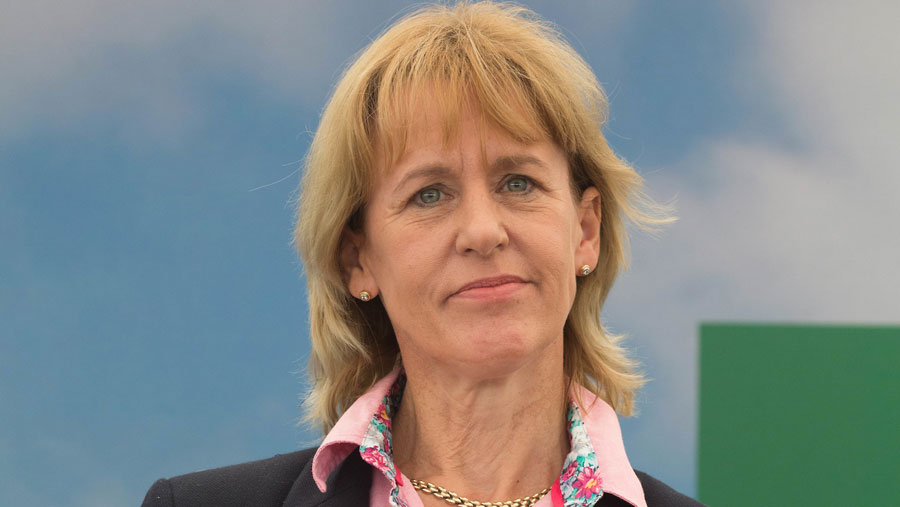NFU Live: Batters stresses need for investment in UK farming
 Minette Batters © Tim Scrivener
Minette Batters © Tim Scrivener Farm leader Minette Batters has called on the government to invest in UK agriculture – highlighting the huge contribution it makes to the national economy.
Investment in farming would have massive benefits to the whole country – not just food production, Mrs Batters told the NFU’s annual conference on Tuesday (23 February).
See also: Labour leader pledges closer relationship with farmers
An NFU report, Levelling up Rural Britain (PDF), launched to coincide with the conference, suggests investing in farming and rural communities can create jobs and improve the wellbeing of the nation.
The report says rural Britain is uniquely placed to help the recovery of the nation from the Covid-19 pandemic.
‘Stronger country’
It says the countryside can can help deliver physical and mental health through the farmed landscape as well as producing nutritious, sustainable and affordable British food.
Mrs Batters said: “If the last 12 months has taught us one thing it’s that we are all in it together – and a country which levels up everyone, everywhere, is a stronger country.”
She added: “Levelling up Britain is not just a north/south issue. Levelling up Britain is also a rural/urban issue.”
Farming was one of the UK’s only remaining primary production sectors, she said.
“I want to stress that it underpins the economic stability of 70% of the country and also makes up 70% of its land mass.”
Enormous investment
Food and drink was the UK’s largest manufacturing sector – worth £120bn a year to the economy, and it had attracted enormous and growing investment from foreign-owned food businesses.
“These businesses are here for one reason – because the raw ingredients are grown here,” she said.
“Government should be encouraging more investment, including British investment into the success story that is British food.
“We need to enable collaborative green growth to level up rural Britain – providing the economic solutions to a truly One Nation UK.”
Self-sufficiency
Defra secretary George Eustice, who also addressed the conference, said farmers could face the future with confidence now that the UK had left the EU.
Many farm sectors had continued to see strong market prices and the UK’s self-sufficiency in food production had increased for the first time since 2014.
Although there were challenges in some areas, such as pigs, many farming sectors had seen a boost to profitability, despite the coronavirus pandemic.
Mr Eustice said he planned to use powers in the Agriculture Act to strengthen the position of farmers in the supply chain and to bring transparency to the marketplace.
He also signalled his intention to support new entrants by working with local councils and other partners to help them get access to land and set up their own farm business.
“New payments and incentives will reward farmers for farming more sustainably, creating space for nature on their land, enhancing animal welfare and reducing carbon emissions,” Mr Eustice said.
“The era of top-down EU rules is over. Our future policy is about supporting the choices farmers make for their own holdings.”
